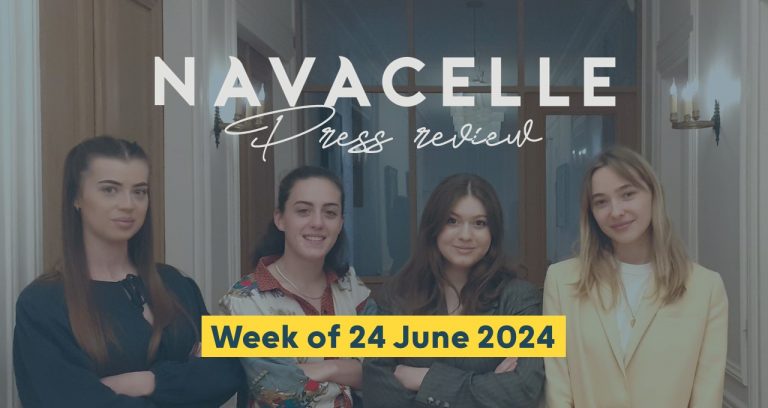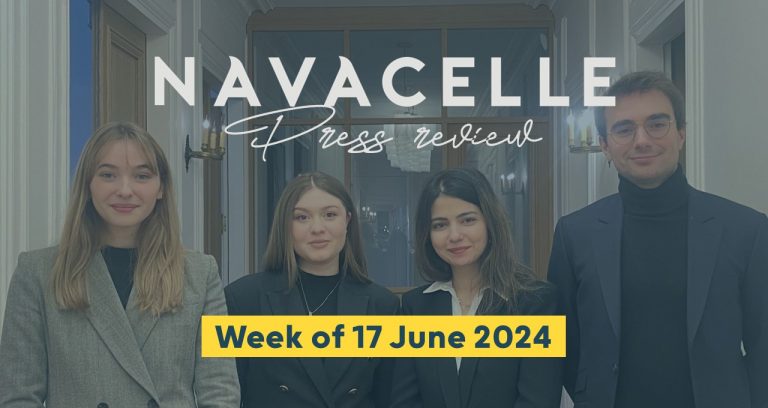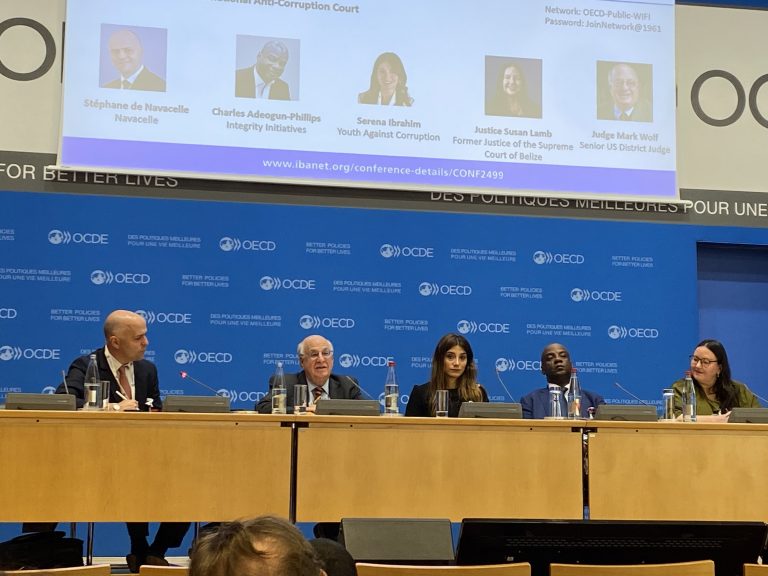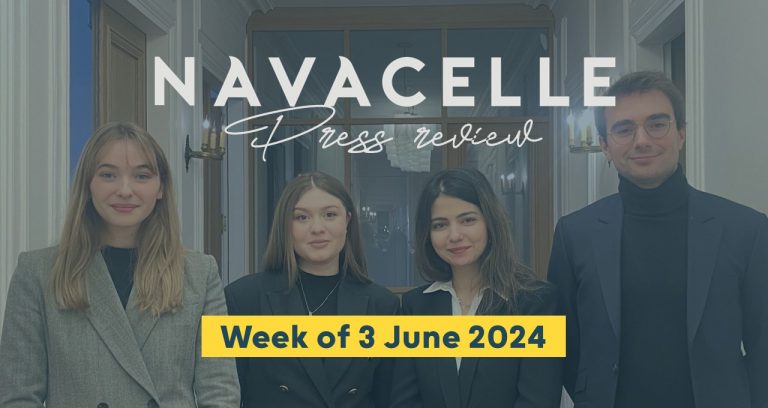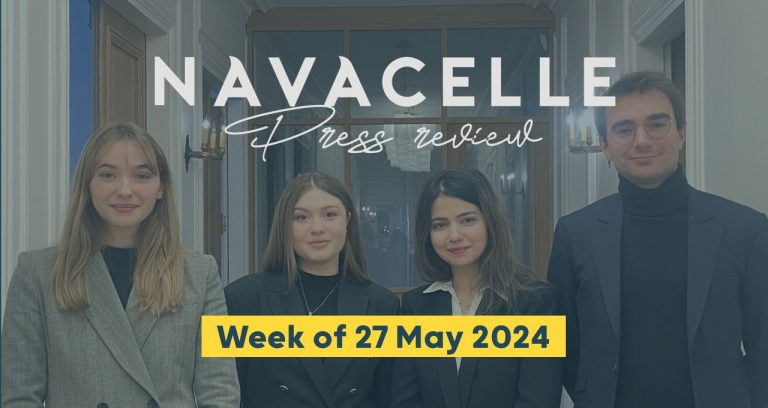On 4 December 2023, the Paris judicial court (tribunal judiciaire de Paris) approved the last two judicial agreements of public interest (convention judiciaire d’intérêt public – CJIP) for corruption of foreign public officials, signed between the National financial prosecutor’s office (procureur national financier – PNF) and ADP Ingénierie (ADPI) on the one hand (I) and SEVES Group / Sediver on the other hand (II).[1]
These two CJIPs, relating to acts of corruption of foreign public officials, bring to twenty the number of CJIPs signed since the creation of this procedure by the Sapin II Law of 2016 and the signing of the first CJIP in October 2017. They also bring to five the number of CJIPs concluded in the area of corruption during 2023,[2] demonstrating that, while this procedure has been extended to multiple offences such as tax fraud, it is no less neglecting the original offences for which it was created, i.e., corruption and influence peddling.
I. ADPI CJIP concludes an investigation opened in 2014 related to corruption of foreign public officials
A. ADPI would have committed acts that could be considered as corruption of foreign public officials in Libya and the United Arab Emirates
In 2013, ADPI filed a complaint for breach of trust, forgery, use of forgeries, complicity and concealment of these offences after (i) receiving an anonymous letter revealing facts likely to be considered as corruption in connection with the negotiation of Libyan contracts between 2006 and 2008 and (ii) discovering documents suggestive of acts of corruption of foreign public officials in the course of litigation with a service provider. In 2014, Paris public prosecutor’s office entrusted an investigation to the Central office for combating corruption and tax financial offences (Office centrale de lutte contre la corruption et les infractions financières fiscales – OCLIFF), which relinquished jurisdiction in 2016 in favor of the PNF.[3]
On the one hand, the investigation conducted by the PNF, as well as the internal investigation conducted by ADPI, show that ADPI certainly had confidential information on a call for tenders launched in 2006 by the Libyan Civil Aviation Authority (LCAA) and that intermediaries, including public officials, may have facilitated the award of this contract.[4]
It also appears that ADPI’s subsidiary in Libya (ADPI LYBIA) benefited from advantageous local financial arrangements even though the conditions for obtaining them were not met, which was made possible in return for a payment made by an ADPI intermediary to the competent administrative body[5]. It was also revealed that several contracts were concluded with local service providers, sometimes at prices higher than the market price, without it being possible to assess the reality of several of their services.[6]
On the other hand, it appears from the PNF investigation and two audit reports carried out by ADPI that the latter signed a contract in 2011 for the creation of a housing estate with a subcontracting company majority-owned by a representative of the Emirate of Fujairah (United Arab Emirates) for an excessive amount in relation to the subcontractor’s scope of work and without any deliverables being found.[7] In addition, it appears that, under an agreement signed between ADPI and the said representative, the latter and its company received a commission of 5% and 21.5% respectively on each payment made to ADPI in connection with contracts and consultancy work carried out in the Emirate of Fujairah.[8]
Therefore, the PNF concluded that all of these acts were likely to be considered as corruption of foreign public officials.[9]
B. ADPI agreed to pay a “public interest fine” but was not required to implement a compliance program under AFA supervision
For the facts described above, ADPI agreed to pay a public interest fine (amende d’intérêt public) of 14,600,000 euros. Based on ADPI’s turnover for the years 2020 to 2022, the theoretical maximum amount of this fine was more than 900,000,000 euros.[10]
This fine was calculated on the basis of the benefits obtained from the breaches identified (restitutive part) as well as taking into account major factors, such as the accumulation of separate acts (committed in Libya and in the Emirate of Fujairah), and minor factors, such as ADPI’s active cooperation which contributed to uncovering the truth and the numerous corrective measures implemented in terms of governance and compliance (afflictive part).[11]
The amount of the benefits obtained from the breaches identified in Libya is based on a forecast estimate of the results at the start of the performance of the contracts and not on the actual margins derived therefrom. This amount was ultimately not taken into account in the calculation of the fine because of the context of the civil war and the fact that ADPI had to stop its services in February 2011 and did not receive such an amount of money.[12]
This fine is also the only penalty imposed on ADPI since the PNF did not ask for the implementation of a compliance program. This deliberate choice by the PNF appears reasonable given that, since 4 January 2022, ADP International and its subsidiaries, including ADPI, have been subject to a two-year control on the implementation of their compliance program by an independent expert as part of a settlement agreement signed with a development bank, and that ADP SA has declared that it is implementing the improvement actions raised by this expert throughout the entire ADP Group.[13]
II. SEVES Group/Sediver CJIP was concluded following the opening of an investigation regarding corruption of foreign public officials in 2018
A. Sediver would have committed acts that could be considered as corruption of foreign public officials in the Democratic Republic of Congo, Algeria, Libya and Nigeria
In 2017, the statutory auditor of Sediver, a SEVES subsidiary, informed Nanterre public prosecutor’s office that the company had been the subject of an investigation by the World Bank into a contract for the rehabilitation of a power line in the Democratic Republic of Congo (DRC), for which it had been selected as a supplier of insulators. In 2018, Nanterre public prosecutor’s office opened an investigation for corruption of foreign public officials, which was subsequently transferred to the PNF in 2019.[14]
The PNF’s investigation revealed that in 2012 a World Bank financed contract was concluded between a state-owned company in the DRC, Société nationale d’électricité (SNEL), and an Indian company and that Sediver acted as a subcontractor responsible for supplying insulators for a power line. It was discovered that, in the context of this contract, Sediver paid commissions to several DRC public officials via a consultancy firm commissioned by the World Bank to assist SNEL in organizing the contract as well as via a Swiss agent and his company, in order to promote its selection as a subcontractor.[15]
The investigation was extended to other projects in the DRC carried out by SNEL where similar facts were identified. It was also extended to other countries (Algeria, Nigeria and Libya) in which it appears that were also involved the above-mentioned Swiss agent and his company as well as another Indian agent and his Emirati company, to whom a commission was allegedly paid by Sediver in connection with one of the projects in the DRC.[16]
At the end of its investigation, the PNF concluded that all of these facts, relating to the DRC, Algeria, Libya and Nigeria, acknowledged by Sediver and SEVES Group, were likely to be considered as active corruption of foreign public officials.[17]
B. Sediver was imposed a “public interest fine” and was required to implement a compliance program under AFA supervision
For the above-mentioned facts, Sediver agreed to pay a public interest fine of 13,373,000 euros and to implement a compliance program under the supervision of the AFA for a maximum period of three years in order to ensure that SEVES Group’s anti-corruption system is in place and effective, it being specified that the costs incurred by the AFA will be borne by Sediver up to a maximum of 500,000 euros.[18]
If the theoretical maximum amount of the public interest fine amounted to 54,000,000 euros, investigations assessed the benefits obtained from the breaches identified to be 9,552,000 euros (restitutive part). Major factors, such as the systemic nature of the facts identified during the period 2009 to 2015 in commercial matters, as well as minor factors, such as compensation for the damage suffered by the DRC through the payment of 6,800,000 euros made to by two subsidiaries of SEVES Group to the World Bank pursuant to the settlement agreement signed in November 2017, were applied to this amount (afflictive part).[19]
C. The PNF decided to apply a “golden clause” in favor of Sediver
The PNF agreed to the implementation of a “golden clause” which provides that the CJIP signed for the above-mentioned facts also covers facts of corruption of foreign public officials of the same nature likely to have been committed in a list of nineteen countries between 2009 and 2015 by Sediver. The PNF explains its decision by the systemic nature of the facts identified, the additional investigations carried out to identify the two agents’ scope of work which seem difficult and the full cooperation of SEVES Group which voluntarily provided information from its internal investigation.[20]
In accordance with its “Guidelines on the implementation of the judicial agreement of public interest” (“Lignes directrices sur la mise en œuvre de la convention judiciaire d’intérêt public”) of 16 January 2023, the PNF provides that this clause only applies if such facts have not been concealed during the procedure and that, should they be committed, they are immediately reported.[21] Moreover, the application of such a clause implies an increase in the fine for the systemic nature necessarily superior to the minor factors. Although the details of the calculations are not reported in this matter, this seems to be the case as it is noted that one of the major factors is the systemic nature of the facts identified during the period 2009 to 2015 in commercial matters.[22]
Therefore, although these two CJIPs were approved on the same day and both relate to corruption of foreign public officials, they are quite different both in term of facts, which are not at the same level of complexity, and in terms of penalties, which do not fall under the same method of calculation as regards the public interest fines and which provide in one case an obligation to implement a compliance program and in the other not. They highlight the different options and methods for assessing sanctions as well as the practical and pragmatic approach to the facts that is applied by the PNF.
CJIP SEVES Group / Sediver also shows the new aspects of this practice in that it provides a “golden clause”, which is a new option clearly provided by the new PNF’s 2023 Guidelines but not included in the AFA and PNF’s 2019 Guidelines. This clause is a way to make the CJIP procedure more attractive for companies. It attests the willingness of prosecuting authorities, including the PNF, to resort more to negotiated justice.
Finally, it should be noted the omnipresence of development banks in these two procedures and the impact that the procedures they lead may have on the modalities of concluding a CJIP in France. Indeed, ADPI escaped a compliance program under the control of the AFA thanks to the expert mandated under the settlement agreement between ADP International and the International Finance Corporation (IFC) and Sediver benefited from the minor factor related to the compensation of the damage suffered by the DRC thanks to the settlement agreement signed with the World Bank which provided compensation to the latter of 6,800,000 euros.
This is in line with the PNF “2023 Synthesis” (“Synthèse 2023”), which states that it has implemented innovative investigation strategies in recent years by strengthening its cooperation with foreign authorities and developing its contact network with French and foreign administrative authorities, such as the World Bank or the Inter-American Development Bank.[23] Companies must therefore be aware of the interconnection of certain procedures and the growing relationship between different authorities around the world that increases their risk of prosecution.


